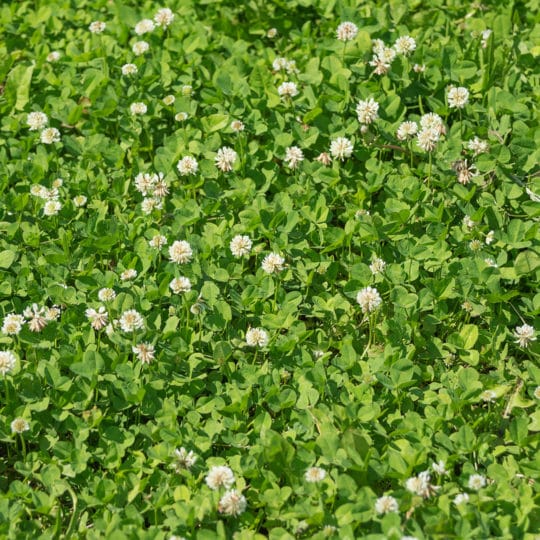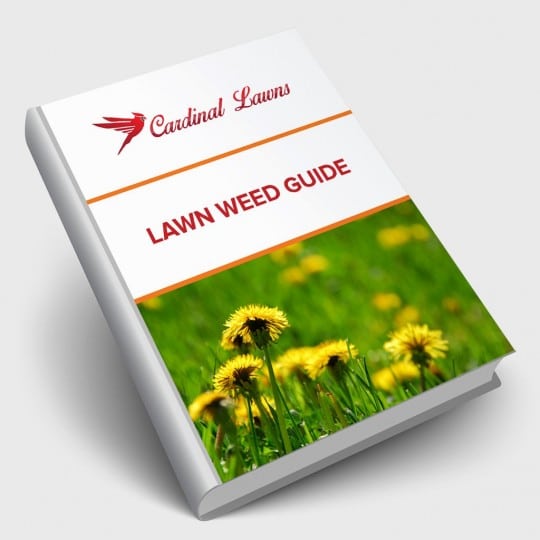Natural Weed Control
Homemade Solutions & Chemical-Free Methods
Posted
June 1, 2023

If you have a lawn or garden, you’ve probably dealt with weeds. Whether you have a lot of weeds or a few here and there, there are ways to help tackle them without using harsh chemicals. Learn about some natural weed control options to get a handle on the lawn and garden invaders the homemade way.
Homemade Weed Control Options
The secret to natural weed control may already be stocked in your kitchen. There are a few ordinary household items that have been used for effectively killing weeds. Keep in mind that these products are non-selective solutions—meaning they’ll kill whatever plant they touch, including desirable flowers and grass. Some can also have an effect on soil composition, so you still want to use each of these with caution.
- Boiling water. One of the easiest ways to target a weed is to pour boiling water over it. Use enough water to soak down toward the root.
- Vinegar. Distilled white vinegar, apple cider vinegar, and cleaning vinegar have all been used to help kill weeds. You can either spray undiluted vinegar onto the plant or mix it with dishwashing liquid and salt for a stronger solution.
- Rubbing alcohol. As an astringent, alcohol removes moisture from the plant foliage and causes it to shrivel and die. Mix two tablespoons of alcohol with a quart of water in a spray bottle for easy application.
While you can use the boiling water method day or night, rain or shine, the other solutions should be applied on a dry day in full sun. The heat will help the process along. Reapplication may be necessary once rain rinses the plants.
These solutions are more effective on annual weeds and may not stop hardy perennials from resurfacing. There are ways to help tackle tougher weeds without chemicals, but it takes more planning and preventative measures.
Dealing with Weeds Naturally
There are some natural methods that don’t require applying any product. These are more preventative solutions that should be done before any weeds surface. If you have an area overcome by weeds, you can still try these methods, but you’ll need to clear the area first.
- Mulch. A few inches of nutrient-rich mulch has many benefits to your garden, including preventing weeds. It’s easy to spread mulch around your desirable plants and stop weaker weeds from popping up.
- Landscape fabric. Before you put the mulch down, you can also add a layer of landscape fabric, newspaper, or cardboard to act as an additional barrier to weeds. While newspaper and cardboard will eventually break down, landscape fabric lasts longer.
- Ground cover. There are some plants—such as ivy and clover—that some gardeners may consider weeds but others think of as ground cover to help prevent other weeds. Some of these low, quick-spreading plants have other benefits; for instance, clover is a pollinator’s paradise.
- Overcrowding. Weeds tend to grow in open spaces, whether it’s bare spots in the lawn or sparse gardens. But there’s less room for a weed to wander in lush, green grass and a garden packed with perennials.
- Hand-pulling. The tried-and-trusted method of many gardeners. If you don’t like chemicals and don’t mind getting your hands (or gardening gloves) a little dirty, grab that weed by the root and pull it out.
- Tolerating. Gardeners can give themselves a break by tolerating some weeds. Basically, a weed is any plant you don’t want in your garden. So if you’ve got some wild violets or buttercups growing around your property, and you don’t mind their presence, it’s okay to leave them alone.
Another easy solution is having a professional lawn and garden company come and tackle the weeds for you. Discuss any concerns you have over the use of chemicals and come up with an effective solution that makes you and your lawn happy.

Download Your FREE Lawn Weed Guide
Before weeds take over your yard this season, learn to identify and prevent them in the first place. Keep your lawn looking great all year!